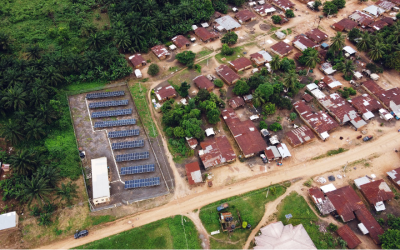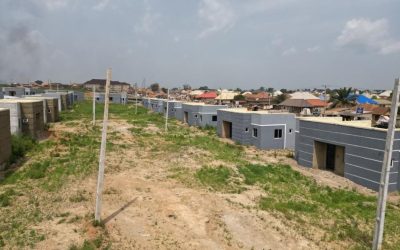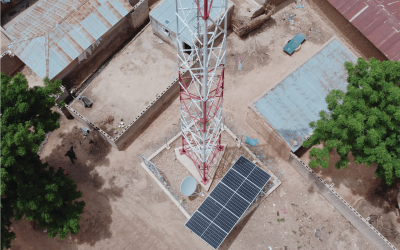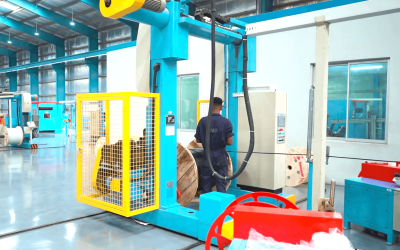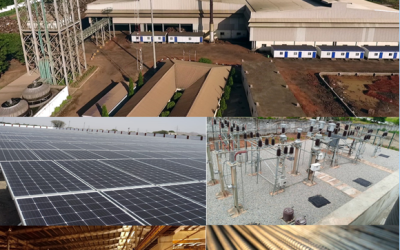Providing essential transport and logistics services
GPC Energy and Logistics Limited (GPC) was incorporated in November 2009 as a private limited liability company and commenced business in November 2010 to address the apparent gap in the transport/logistics sector.
GPC Energy and Logistics Limited
GPC is one of Nigeria’s leading transportation/logistics’ companies. The Company provides essential transport and logistics services in 12 major locations across the South-West, South-South, South-East, and North Central regions. The Company adopts a B2B (business to business) model in its interaction with clients, providing primary and secondary level distribution and logistics.
The Company currently operates a fleet of vehicles predominantly comprised of European and Chinese trucks such as MAN Truck, Sino Truck and Mercedes Benz Trucks for its logistics operations to provide supports to several companies across different sectors, and construction sectors
Project Highlight
GPC Energy and Logistics has grown its fleet size from five (5) trucks (at the Company’s inception) to over 500 trucks covering an average of 2.8 million kilometers monthly. Today, the Company has grown to become one of the largest and leading independent operators, offering supply chain support services for the haulage of goods to specific locations on behalf of its clients which include multinationals in the Fast-Moving Consumer Goods (FMCG), and cement industries.
GPC’s operations cut across the South-West, South-South, South-East, and North Central regions with major presence in 12 locations across the country with a fleet predominantly comprised of European and Chinese trucks – e.g. MAN Truck, Sino Truck and Mercedes Benz Trucks, etc.
GPC’s ability to meet its obligations is tied to its strong, stable and diversified revenue base backed by contracts with blue-chip multinationals in Nigeria including but not limited to: Nestle, Nigerian Breweries, Guinness, etc. Proceeds of the Series 1 bonds will finance the acquisition of up to 220 heavy duty trucks to support the company’s expansion programme as well as its business diversification strategy.
Development Impact
Building resilient infrastructure and promoting inclusive and sustainable industrialization is a sustainable development goal (SDG). The development impact for this transaction can be assessed in three folds: (1) Job Creation (direct and indirect): the proposed acquisition of 220 trucks would be expected to create employment opportunities for new workers with over 50% of these workers being employed to provide skilled labour which would contribute to the recovery of the economy from the impact of Covid-19 pandemic as well as reduction in supply chain disruptions; (2) Increased Capacity: the proposed truck acquisition would increase GPC’s haulage capacity by about 6,600 tons per day. The increased capacity will lead to increased distribution of goods which consequently improves standard of living due to increased availability and access to essential goods; (3) Time & Cost Savings: this is attributable to both GPC and the customer being served. The increased capacity from the new fleet would lead to significant time savings as a result, increased volumes being distributed in a shorter period.
20
Billion Naira
Transaction Details
With InfraCredit’s guarantee, GPC was able to access the domestic debt capital markets for the first time and raised NGN20 Billion 10-year Series 1 Guaranteed Bond under a NGN50 Billion programme
The NGN20 Billion Series 1 Guaranteed Fixed Rate Infrastructure Bonds Due 2031 (the “GPC Series 1 Bonds”) under a NGN50 billion Debt Issuance Programme was accorded a ‘AAA’ long term credit rating by Agusto and Co. and DataPro Limited, reflecting the highest degree of creditworthiness for bonds. The Series 1 Bonds, a 10-Year Guaranteed Fixed Bond, was 25.3% oversubscribed by institutional investors including nine (9) domestic pension funds. The bond proceeds will be used to finance the acquisition of additional trucks to sustain the strong growth trajectory of the company in meeting the burgeoning demand from clients across key growing sectors of the Nigerian economy
